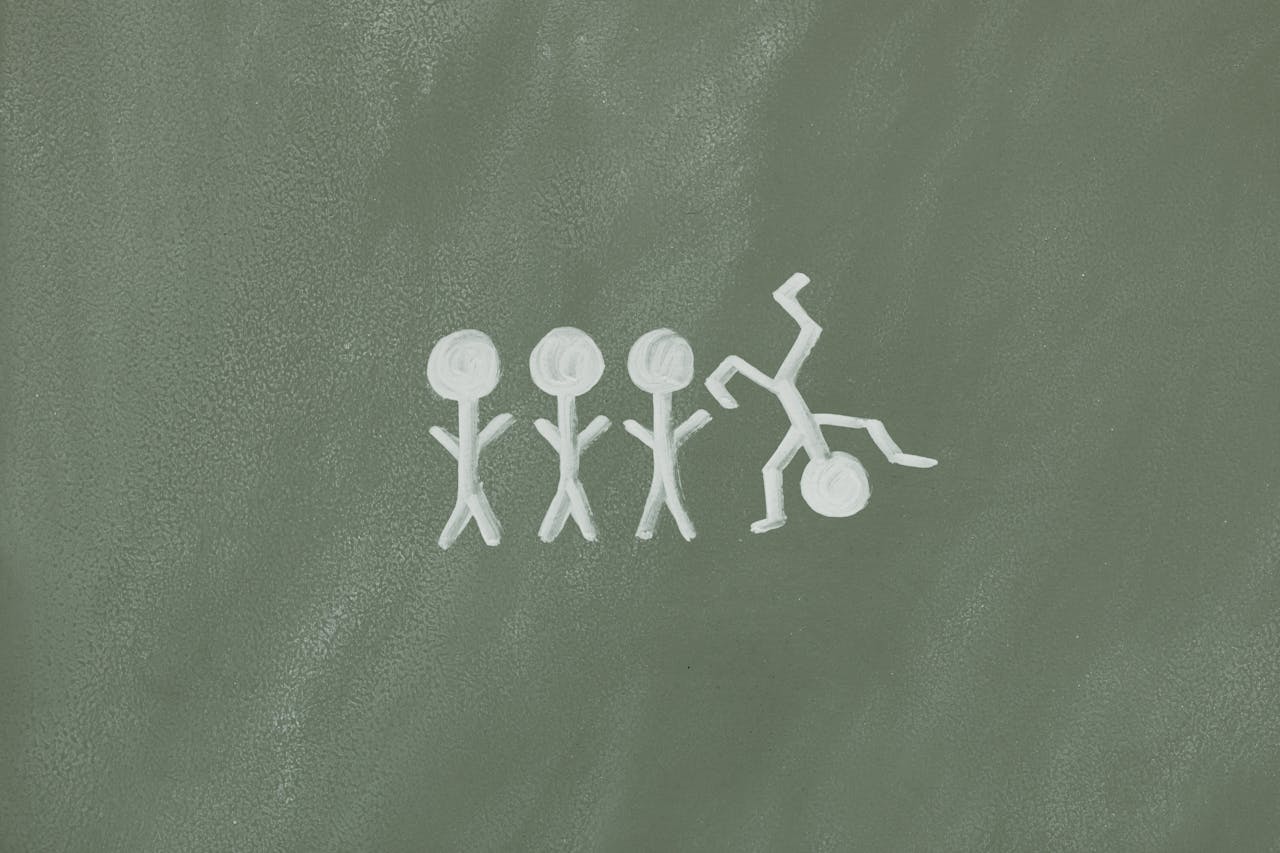-
 Tammette Chitwood : Author
Tammette Chitwood : AuthorAs your therapist, I will provide you with a welcoming and safe space to explore the desired outcome of your life. With empathy and compassion, I will seek to see your experiences through your lens and work with you toward holistic healing – physical, emotional, mental, relational, and spiritual – with God’s help and direction. My desire is to walk alongside you on this journey and help you to realize the potential you have within to achieve greatness and restoration in your personal life and relationships.
-
 Kate Motaung : Curator
Kate Motaung : CuratorKate Motaung is the Senior Writer, Editor, and Content Manager for a multi-state company. She is the author of several books including Letters to Grief, 101 Prayers for Comfort in Difficult Times, and A Place to Land: A Story of Longing and Belonging. Kate is also the host of Five Minute Friday, an online writing community that equips and encourages Christian writers, and the owner of Refine Services, a company that offers editing services. She and her South African husband have three young adult children and currently live in West Michigan. Find Kate’s books at katemotaung.com/books.
Mental health is an important aspect of a healthy life. It is how humans process thoughts, emotions, and behaviors. However, just as adults can develop a mental disorder, children are also susceptible. Many mental disorders begin developing during childhood and the teen years. Know what common symptoms of mental disorders to be aware of in children. What are the common symptoms of childhood mental disorders? Each mental disorder has its own symptoms, but many of them overlap. The problem
If you’ve ever had someone step on your toes, figuratively or literally, beyond the initial shock and pain there will often be feelings of anger that follow. You may think: Didn’t they see me standing here?. Who does she think she is?. What an inconsiderate jerk!. He didn’t even apologize!. If you are not able to interrupt that stream of thought, your anger will escalate. There’s a story of a guy who was walking to a neighbor’s house to
We are all born with a dream and a desire. As children, we explore with our senses and imagination. We learn to clamor after the wonders in our worlds with curiosity and intention. Sometimes, it is nurtured and in other cases, it is extinguished. Depending on the environment that we grow in and those who raise us, we are trained to either soar or suppress our unique abilities and aspirations. God has outfitted every human with limitless
For many years, people with disabilities, learning differences, or mental and emotional health challenges have been stigmatized. Often, the ways that society has emphasized and measured intelligence and skill are not consistent with the way that God views us, especially where ADHD in children is concerned. Unfortunately, the environments structured to unlock our potential in childhood, at the most vulnerable time of life, often do the opposite. Sometimes they squash our inquisitive nature instead of unleashing God’s creativity in
Our past can have a profound impact on our present and future well-being. If you were hurt in a past relationship, it’s possible to carry that pain with you into your other relationships. The new relationship can end up bearing the burden of the past relationship – for instance through trust issues and having difficulty opening up due to a past betrayal – leading to fear of abandonment. It’s possible, however, to overcome these wounds and build healthy relationships.
The saying, “familiarity breeds contempt” surely has some grounding in reality. When we spend extended time with people and get to know them well, we know their flaws and weaknesses, and what we may have considered small quirks at the beginning of our relationship with them can grow into bigger issues. There are many different reasons why anger can flare up in a relationship – familiarity turned sour, unresolved conflicts, feelings of betrayal, unmet expectations, anger management issues stemming
Change isn’t always easy to make sense of or adjust to. The disruption of familiar patterns can be confusing to navigate, and it requires you to be resilient and highly adaptable to cope. The adolescent years are characterized by several things happening all at once, but those mostly boil down to one thing: change. These years are a time of transition toward adulthood and gaining deeper self-understanding and identity. They can be a difficult time. As one can imagine,
Avoidance anxiety results from trying to avoid those things that cause you to be uncomfortable or fearful. When facing fears, a person experiences anxiety. Avoidance anxiety is a disorder that a person experiences when they know they are facing a situation they don’t think they can overcome. As the person tries to avoid the situation and the anxiety it causes, they may exhibit behaviors that affect how they interact with others. Being overwhelmed by anxiety can lead to extreme
Anger is nothing new in the human condition. Increasingly, public displays of rage are commonplace, whether they are directed at public officials, institutions, or on a more personal level between motorists or family members. Whether this anger is expressed in person or online, much of the anger that we witness can typically be described as ugly and destructive. This is why anger management tips can be helpful. Seeing the ugly side of anger can put you off. For some
Most humans want to see fruitful outcomes in life. We are created like the Father to want what He wants, though we may express it differently. Despite this abiding desire, life presents boulders that can obstruct not only our view but also disrupt our progress toward the future we’ve envisioned. Personal development can help. Daunted and overwhelmed, we sometimes abandon the pursuit, clouded by discouragement and cluttered by life. Dreams from God often loom larger than what we feel
Would you say that you’re the kind of person that is led by their emotions? Our emotions are an important part of our lives. They are like bells that go off periodically, alerting us to what’s going on inside us, and how we are responding to the world around us. Laughter tells us that we are enjoying ourselves, and it feels pleasurable. We can usually pinpoint what we’re laughing about without much difficulty, and we know the kinds of
Autism is a developmental disability that primarily affects social interactions and communication skills, and typically includes fixations with routines, restricted interests, and repetitive patterns of behavior. Before 2013, the American Psychiatric Association (APA) recognized four different types of autism based on specific sets of symptoms affecting a child’s development. Each one was given a unique diagnostic label in the Diagnostic and Statistical Manual of Mental Disorders (DSM-IV) with the intent of helping medical professionals, educators, and parents understand the













